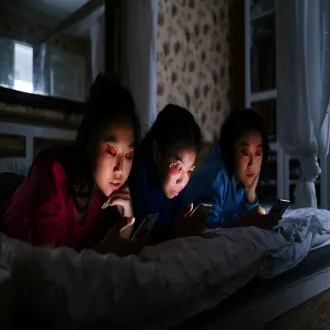Transcription Case study: the nocebo of bad dreams
The Perception of Sleep Quality
We all know that a bad night's sleep affects our performance the next day.
But how much of that effect is due to actual lack of sleep and how much to our belief that we slept poorly? This question was the focus of a study that explored the nocebo effect on cognitive performance after a night's sleep.
The Sleep Information Manipulation
In the experiment, researchers took participants to a sleep lab.
In the morning, they were given false information about the quality of their sleep during the night, supposedly based on brain wave measurements.
Some were told they had excellent sleep quality, with an above-average percentage of REM sleep.
Others were told they had poor sleep quality, with below-average REM sleep.
The Impact on Cognitive Performance
After receiving this (false) information, participants performed a series of cognitive tests measuring attention and processing speed.
The results were clear and consistent with the nocebo effect.
Those who were taken to believing they had slept poorly, regardless of how they had actually slept, performed significantly worse on tests than those who believed they had slept well.
Implications for Everyday Life
This study has profound implications for our everyday lives.
If, after a night of interrupted sleep, we tell
case study the nocebo of bad dreams




